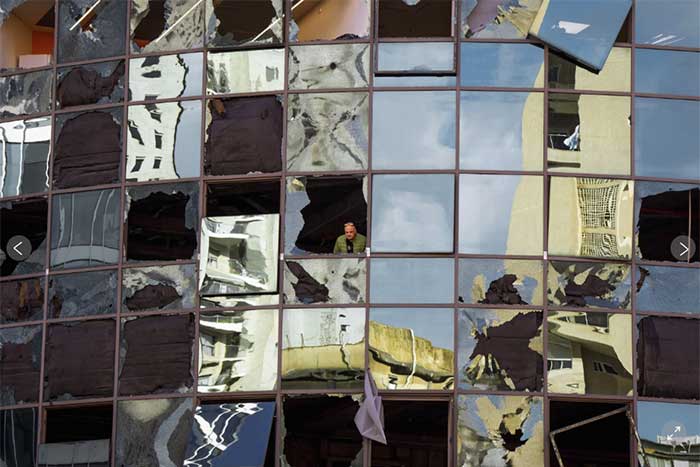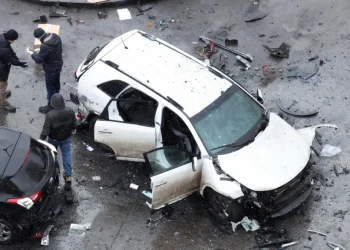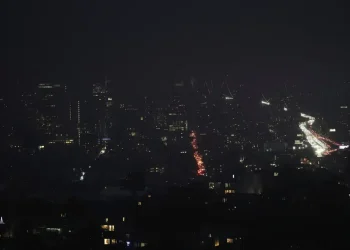U.S. Envoy Says Israel-Hezbollah Truce “Within Our Grasp,” but Gaza Crisis Deepens
Lebanon: Progress Toward a Truce
BEIRUT (AP) — U.S. envoy Amos Hochstein expressed optimism on Tuesday that a truce between Israel and Hezbollah was “within our grasp” following talks in Lebanon. This comes as Hezbollah’s allies in the Lebanese government indicated positive reception to a proposal involving the withdrawal of both Hezbollah fighters and Israeli ground forces from the U.N.-designated buffer zone in southern Lebanon.
- Proposed Plan:
- Thousands of additional U.N. peacekeepers and Lebanese troops would patrol the buffer zone.
- Israel seeks stronger enforcement mechanisms, including rights for military action against potential Hezbollah threats, which Lebanon is likely to oppose.
During discussions with Lebanon’s Parliament Speaker Nabih Berri, a Hezbollah ally, Hochstein described the talks as “very constructive” and highlighted significant progress.
Tensions Escalate Along the Border
Israeli airstrikes continue to target southern Lebanon, with three Lebanese soldiers killed in the town of Sarafand on Tuesday, adding to the 41 soldiers reportedly killed in the past month.
Lebanon awaits further details from Hochstein’s talks with Israeli officials, but optimism in Beirut contrasts sharply with the deteriorating situation in Gaza.
Gaza: A Humanitarian Catastrophe
The humanitarian crisis in Gaza worsens as Israel’s military siege prevents food and aid deliveries to northern areas, where famine conditions are feared.
Aid Blockades and Worsening Conditions
- The U.N. reports that almost no food or humanitarian aid has reached northern Gaza for over 40 days.
- Planned humanitarian missions are often rejected or obstructed by Israeli forces.
- Towns like Beit Hanoun and Jabaliya remain cut off, leaving 75,000 residents without basic necessities.
Israel asserts that aid deliveries are unrestricted and that efforts are underway to increase access. However, aid groups criticize the limited number of trucks entering Gaza, with only 88 trucks allowed daily in November—less than half the war’s peak levels in April.
Looting Exacerbates Crisis
The theft of nearly 100 aid trucks over the weekend caused shortages and skyrocketing food prices in central Gaza.
- Bread Prices: Flour now costs 400 shekels ($100) per bag, making it inaccessible to most residents.
- The U.N. said looters intercepted trucks redirected by Israeli forces to unfamiliar routes near the Kerem Shalom crossing.
- Hamas denied involvement in the looting and claimed to be taking measures against theft and market exploitation.
Regional Fallout: The War’s Expanding Toll
Gaza and Israeli Casualties
- The war in Gaza began after Hamas’ October 7 attack on Israel, which killed 1,200 people and abducted around 250 hostages.
- Israel’s response has killed nearly 44,000 Palestinians, over half of whom are women and children.
Lebanon Casualties
- Hezbollah’s involvement in the conflict has led to over 3,500 deaths and 15,000 injuries in Lebanon due to Israeli bombardments.
- Displacement continues to rise, with 1.2 million Lebanese citizens forced to flee their homes.
Israel Casualties
- On the Israeli side, 87 soldiers and 50 civilians have been killed in the conflict with Hezbollah.
Conclusion
While progress toward a truce between Israel and Hezbollah offers some hope for de-escalation in Lebanon, the crisis in Gaza underscores the region’s ongoing humanitarian and geopolitical turmoil. The war’s devastating impact on civilians demands urgent international attention.
This article was rewritten by JournosNews.com based on verified reporting from trusted sources. The content has been independently reviewed, fact-checked, and edited for accuracy, neutrality, tone, and global readability in accordance with Google News and AdSense standards.
All opinions, quotes, or statements from contributors, experts, or sourced organizations do not necessarily reflect the views of JournosNews.com. JournosNews.com maintains full editorial independence from any external funders, sponsors, or organizations.
Stay informed with JournosNews.com — your trusted source for verified global reporting and in-depth analysis. Follow us on Google News, BlueSky, and X for real-time updates.














